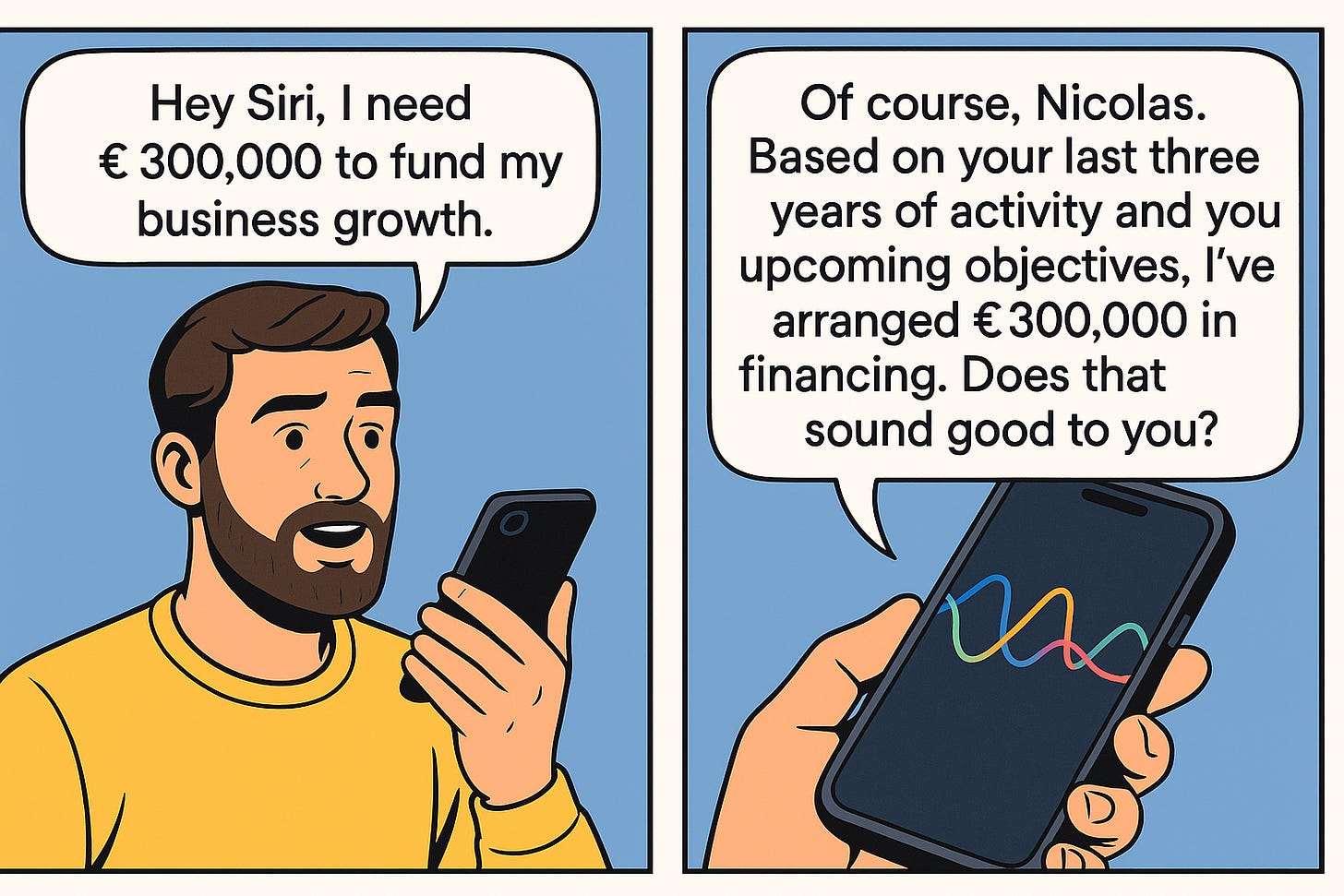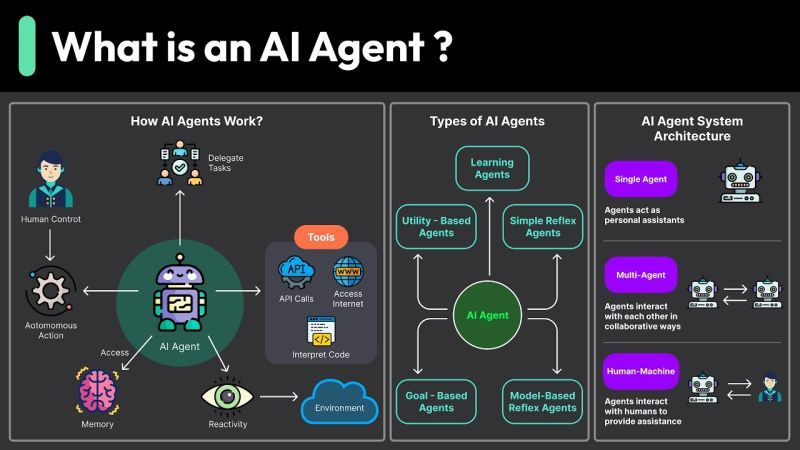🤖 “Hey Siri, I need €300,000”: Welcoming the Age of Intelligent Agents in Customer Relationships
Agentization is not a shortcut. It’s a systemic transformation
"Hey Siri (or Alexa, or any other), I need €300,000 to fund my business growth."
"Of course, Nicolas. Based on your last three years of activity and your upcoming objectives, I’ve arranged €300,000 in financing — 50% from your main bank, and 50% from Bpifrance. Does that sound good to you?"
"Perfect, thank you."
"Very well, the funds are now available in your account."
This exchange may sound futuristic, but it’s getting closer to reality every day.
Not thanks to magic. But thanks to a solid ecosystem of data, APIs, security, fine-tuning, and intelligent agents designed to act — not just answer.
Welcome to the age of AI agents: systems that reason, plan, decide, and interact, in real-time, on our behalf.
🌐 Agents: Autonomous, Yes — But Never Alone
Agent-based systems are emerging as the next evolution of digital experience — not just answering questions, but actually doing things for us.
But here’s the truth: autonomy is an illusion without the right foundation.
No clean, up-to-date, well-governed data? Your agent is flying blind.
No secure, documented, scalable APIs? Your agent is powerless.
No fine-tuned instruction logic? Your agent is unpredictable.
No access rights management? Your agent is dangerous.
No feedback loops? Your agent is useless after the first mistake.
In short: by default, an agent is deaf, mute, and blind.
It’s only through a deliberate ecosystem of engineering, governance, and design that it becomes useful — and safe.
🧠 Introducing AX: Agent Experience
We’ve built careers and systems around UX (User Experience).
We’ve learned to care about DX (Developer Experience).
Now we need to talk about AX — Agent Experience.
AX is about designing environments where agents can act reliably, efficiently, and ethically.
It’s the missing piece between technical potential and operational value.
A solid Agent Experience includes:
Access to structured, secure, versioned APIs
Clean, governed, context-rich data
Clear instructions and task boundaries
Observability and feedback mechanisms
Escalation logic for ambiguous decisions
Regular fine-tuning and safety testing
Just like we design for users, we must now design for agents.
🏗️ Agent-Ready by Design: Rethinking Our Organizations
Agentization isn’t just a technical shift — it’s an organizational one.
It impacts how we design teams, workflows, products, and governance.
In this context, the Team Topologies framework is more relevant than ever:
Stream-Aligned Teams: delivering direct user value and interfacing with agents.
Platform Teams: building the APIs, data contracts, and services agents will depend on.
Enabling Teams: driving adoption and experimentation with new agent capabilities.
Complicated Subsystem Teams: managing deep logic like policy engines, scoring models, or natural language pipelines.
Just as Conway's Law taught us, our system architecture will mirror our team structure. If we want agent-ready systems, we need agent-ready organizations.
⚖️ Power + Responsibility = Long-Term Value
AI agents are not just a shiny new feature.
They change how we build, how we govern, and how we serve users.
At Bpifrance, we’re already witnessing this shift:
Our platformization strategy allows modular, API-based integration.
We treat data as a product: owned, documented, accessible.
We build product-led teams, obsessed with user impact and feedback.
We ensure ethical oversight, especially around automation, explainability, and data privacy.
Agentization is not a shortcut.
It’s a systemic transformation — and a long-term investment.
🚀 The Real Question Isn’t “Can We Do It?” — It’s “Can We Do It Well?”
The era of agents has begun. The question isn’t whether we’ll use them — it’s how responsibly, how strategically, and how usefully we’ll deploy them.
An agent isn’t a tool. It’s a partner in execution.
And just like a team member, it needs access, instructions, feedback, and trust.
The real revolution won’t be about apps — it will be about organizations that know how to collaborate with intelligent agents.




